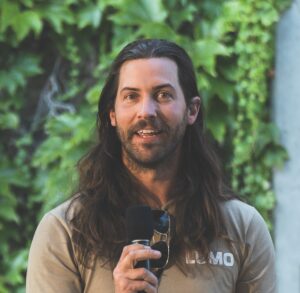
Devon Wright grew up in Whitby, a suburb of Toronto, on the North Shore of Lake Ontario, in Canada. He was always fascinated by how things worked and how to make them more efficient. Devon launched his career as an entrepreneur with the creation of an online platform for restaurants which was eventually acquired by Yelp. In 2017 he relocated to northern California and decided it would be cool to grow his own food. When watering his crops became a challenge, he looked for ways to solve irrigation problems and conserve water. He then launched Lumo, to give farmers precision control over their water usage, and to make agriculture more sustainable. Here’s his story.
You grew up in Canada; can you tell us about your family and what it was like growing up in Toronto in the 90’s? Was your family involved with agriculture, technology, or the wine industry?
I grew up in a small town called Whitby, about 30 minutes east of Toronto with my mom, dad, and sister. While I didn’t grow up on a farm or in the tech world, I was always fascinated by how things worked—whether tinkering with gadgets or figuring out how to make processes more efficient. That curiosity naturally translated into entrepreneurship later in life.
What prompted you to relocate to California in 2017, and where did you land?
In 2017, I decided to relocate to California, in the Bay Area, because I saw it as an incredible opportunity to immerse myself in an environment that was both innovative and forward-thinking, especially in the fields of technology and sustainability. California has long been at the forefront of tech innovation, and I wanted to be part of that dynamic ecosystem.
California also offers a unique lifestyle, with a strong emphasis on sustainability, outdoor living, and healthy living—values that resonate deeply with me. Over time, this move has shaped much of the work I do, particularly with Lumo, where the state’s environmental challenges and agricultural landscape have directly influenced our approach to irrigation and water conservation.
Why did you decide to plant an orchard and grow your own food?
I’ve always been inspired by the idea of creating something sustainable and meaningful with tangible results. Planting an orchard and growing my own food felt like a natural extension of this philosophy. It’s not just about self-reliance; it’s about understanding the cycles of nature, valuing what goes into the food we eat, and contributing to a healthier environment.
In a recent interview, you said you’ve always been into “making and selling stuff.” You built a company called Turnstyle Solutions that was eventually sold to Yelp. Tell us about it and what you learned during the process of founding it, and eventually selling it? Was there any one big take-away lesson?
Turnstyle Solutions was born out of a desire to bridge the gap between the digital and physical worlds. We created a Wi-Fi-based marketing platform that allowed businesses to better understand and engage with their customers.
The biggest takeaway for me was the importance of focus. As a startup, it’s easy to get distracted by opportunities that pull you away from your core mission. Staying laser-focused on solving the right problem for the right audience was what ultimately drove our success.
Selling Turnstyle to Yelp was incredibly rewarding, not just as an entrepreneurial milestone, but also because it allowed our vision to scale far beyond what we could have achieved independently. It reinforced my belief in the value of building something impactful, no matter the size of the starting point.
In 2018, after experiencing drought and water shortages first-hand at your new home, you decided to pursue irrigation technologies as your next venture. Lumo was created to solve those irrigation problems. Tell us how you accomplish this. Did you have investors or business luminaries or partners to help along the way?
At Lumo, we tackle this issue by combining smart technology with sustainability. We’ve developed a cloud-based water management platform that uses IoT-enabled valves to optimize irrigation schedules. Our system gives farmers precision control over their water usage, helping them save water, reduce costs, and increase crop yields. It’s about empowering them to make better decisions with real-time data and automation.
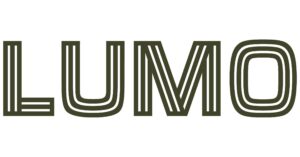 Building Lumo has been a collaborative effort. From the start, we’ve had incredible support from forward-thinking investors and advisors who understood the magnitude of the problem we’re solving. Their belief in our mission has been instrumental in bringing Lumo to life. I’m also fortunate to have an amazing team and co-founder who brings a wealth of expertise in technology, agriculture, and business development. Together, we’ve been able to turn a pressing challenge into an opportunity for real impact.
Building Lumo has been a collaborative effort. From the start, we’ve had incredible support from forward-thinking investors and advisors who understood the magnitude of the problem we’re solving. Their belief in our mission has been instrumental in bringing Lumo to life. I’m also fortunate to have an amazing team and co-founder who brings a wealth of expertise in technology, agriculture, and business development. Together, we’ve been able to turn a pressing challenge into an opportunity for real impact.
You’ve said that Lumo’s biggest competitor is manual labor – people turning on and off irrigation valves manually – to control the irrigation going into farms, orchards, and vineyards. How do you sell customers on the ROI for your technology? Or do they come begging for help? Do your customers mostly find you through referrals?
“It’s true that our biggest competitor is manual labor; many farmers are still using traditional methods to control irrigation. While it’s a familiar approach, it’s inefficient, time-consuming, and costly in the long run. We help customers understand the ROI by focusing on two key benefits: operational efficiency and improved crop yield.
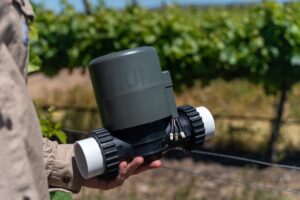 With our smart irrigation system, farmers can precisely control when and where water is applied, eliminating overwatering and ensuring crops get exactly what they need. This reduces pumping and energy costs. At the same time, automating irrigation means less time spent manually turning valves, which frees up labor for other important tasks. Finally, by optimizing water use, farmers often see healthier crops and better yields, which directly impacts their bottom line.
With our smart irrigation system, farmers can precisely control when and where water is applied, eliminating overwatering and ensuring crops get exactly what they need. This reduces pumping and energy costs. At the same time, automating irrigation means less time spent manually turning valves, which frees up labor for other important tasks. Finally, by optimizing water use, farmers often see healthier crops and better yields, which directly impacts their bottom line.
Our customers come to us through a mix of referrals, word-of-mouth, and partnerships. Farming communities are tight-knit, and once one grower experiences the benefits of Lumo, they’re often eager to share their success with others. We also make a point of working closely with our customers, providing ongoing support to ensure they see the full value of the technology.
How did you first get connected to the Petaluma Gap Winegrowers? Was it through some of our member winegrowers? Are most of your customers large agribusiness or do you also have smaller growers? How much of an impact has Lumo had on saving and securing our water supply in Sonoma County? Have you considered technology to support recycling water?
We first connected with the Petaluma Gap Winegrowers through Scott Welch from Jackson Family Wines; he was an early adopter of our technology. Sonoma County is known for its innovative and environmentally conscious agricultural practices, and the winegrowers here have a deep understanding of the importance of water management. It’s been inspiring to collaborate with this community, which is so committed to sustainability.
At Lumo, we work with a range of customers, from large enterprises to smaller, family-owned farms. Our technology is designed to be scalable and accessible, so it’s just as effective for a small vineyard as it is for a large orchard or farm.
In Sonoma County, our system has already made a measurable impact. By optimizing irrigation, we’ve helped growers significantly reduce water usage, often by 20-30%, without compromising crop health. This not only helps secure the water supply, but also builds resilience against future droughts.
We haven’t put much consideration into recycling water, since our focus is on how to efficiently deploy existing water resources.
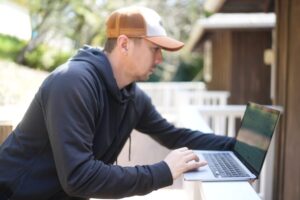 In a recent online post, you said: “Our goal should never be to remove people from the field. Our goal is to build tools that help farmers be happier and more productive while achieving their goals. Nowhere should we seek to remove people from their jobs. Let’s support farm workers every way we can.” Can you share some ways that you develop and support your employees?
In a recent online post, you said: “Our goal should never be to remove people from the field. Our goal is to build tools that help farmers be happier and more productive while achieving their goals. Nowhere should we seek to remove people from their jobs. Let’s support farm workers every way we can.” Can you share some ways that you develop and support your employees?
At Lumo, our philosophy is deeply rooted in the idea that technology should enhance human potential, not replace it. This mindset extends not only to the farmers and workers who use our tools but also to our team. Supporting and developing our employees is a core part of our culture because their passion and creativity are what drive our success.
One way we do this is by fostering a collaborative and inclusive work environment where everyone’s voice matters. We encourage open communication and create opportunities for employees to contribute ideas, whether it’s about improving our product or enhancing our processes.
We know you care deeply about social media, its impact on mental health, and making in-person connections. Do you have any ideas about how technology could be applied to facilitate a fun and engaging environment for the younger generations to learn about and embrace wine as their go-to social beverage? Certainly, the wine industry needs such innovation now!
I believe technology can play a powerful role in making wine more approachable and engaging for younger generations. At its best, technology fosters connection and curiosity, and the wine industry has a tremendous opportunity to leverage this to reach new audiences.
One idea is creating immersive digital experiences that demystify wine. For example, augmented reality (AR) could allow users to scan a wine label with their phone and instantly learn about the vineyard, the winemaking process, and pairing suggestions—all in a visually engaging and interactive way. This kind of storytelling makes the experience personal and fun, especially for those who might feel intimidated by traditional wine culture.
Social media and community-driven platforms also hold potential. Hosting virtual wine tastings or live Q&A sessions with winemakers could create meaningful interactions and foster a sense of connection. These events could be tailored to younger audiences by focusing on themes like sustainability, innovation, or the artistry of winemaking.
Ultimately, the goal is to break down barriers and make wine less about exclusivity and more about enjoyment and discovery. By combining technology with the timeless appeal of in-person connection, we can help the next generation see wine as an accessible and enjoyable part of their social lives.
Do you have your own family? How do you spend your free time? Are there sports that you enjoy?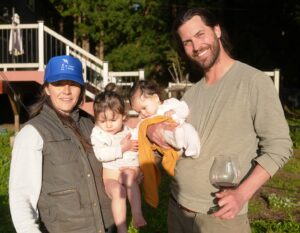
I have an amazing wife, two daughters, and a third on the way! I don’t play as many sports as I used to, but I like to get out hiking when I can. I typically spend most of my free time tending to my animals (goats, ducks, chickens, and horses) and the orchard. I also just purchased a unicycle which I’m hoping to learn how to ride over the holidays!
At your young age, you’ve already had significant entrepreneurial success. Tell us about your role with Ripple Ventures and how you’re helping other entrepreneurs to be successful.
My role with Ripple Ventures is deeply personal and fulfilling because it allows me to give back to the entrepreneurial community that has supported me throughout my journey. Ripple is a venture capital firm focused on helping early-stage startups navigate the challenges of building and scaling their businesses. As a venture partner, I work closely with founders, sharing insights and lessons from my own experiences in starting, scaling, and exiting companies.
One of the ways I support entrepreneurs is by helping them identify and focus on their core value proposition. Early-stage companies often face the temptation to chase too many opportunities at once, and I’ve learned firsthand that clarity and focus are critical to success. I also emphasize the importance of building strong teams, fostering a culture of resilience, and staying adaptable in the face of challenges.
For me, the most rewarding part of this role is seeing founders succeed on their terms. Entrepreneurship is a tough but incredibly rewarding journey, and I’m grateful to play a part in helping others bring their visions to life.
What’s your favorite drink and what would be the ideal meal to enjoy with it?
My favorite drink would have to be a well-crafted Pinot Noir paired with grilled salmon.
What’s next for you?
Looking ahead, I’m focused on continuing to drive innovation in agriculture and sustainability through Lumo. As water scarcity and climate change become increasingly urgent issues, I see opportunities for tech to play a central role in shaping a more sustainable future.
In the near future, I see a lot of growth for Lumo, and I’m eager to expand the impact we’re having on farmers and communities. Beyond that, who knows? I’m always open to new ideas, new challenges, and new ways to make a meaningful difference.
